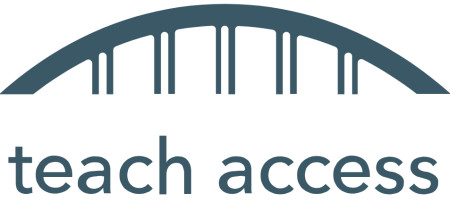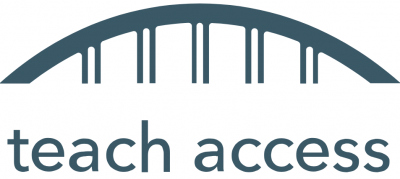Teach Access Announces Its First Academic Hub in the Nation

EATON RAPIDS, Mich., June 20, 2024 (Newswire.com) - Teach Access, a national nonprofit collaborating with industry, higher education, government, and disability advocacy organizations, announced that it has secured its first academic hub to scale Teach Access programs, getting closer to reaching its goal of 1 million students by 2030.
Michigan State University’s College of Arts and Letters was signed as Teach Access's first academic hub, and Teach Access continues to establish other hubs nationwide.
“Our students have worked for Teach Access as interns and have learned how to apply knowledge from coursework and articulate their passions for accessibility,“ said Casey McArdle, Assistant Professor and Director of Experience Architecture in the Department of Writing, Rhetoric, and Cultures at MSU. "We are excited to be an academic hub for Teach Access and the opportunities it will bring to our program and students.”
As an academic hub, MSU’s College of Arts and Letters is committed to intentionally increasing efforts to promote teaching accessibility, foster a culture of inclusivity and accessibility, and integrate accessibility fundamental concepts and skills into the curriculum.
“Promoting our programs and resources among their faculty, staff, and students is critical for scaling our programs,” says Rolando Méndez-Fernández, Teach Access Director of Education. “We look forward to supporting educators in transforming their curricula so that every student learns the fundamental concepts and skills of digital accessibility.”
Teach Access is working with institutions in the United States and Puerto Rico to establish additional hubs, focusing on Minority-Serving Institutions. Teach Access aims to equip the next generation of workers with the skills and knowledge necessary to create a more inclusive world where digital technology is born accessible. To learn more, visit https://teachaccess.org.
About Teach Access
Teach Access is a non-profit 501(c)(3) organization collaborating with education, industry, and disability advocacy organizations to address the critical need to enhance students' understanding of digital accessibility as they learn to design, develop, and build new technologies with the needs of people with disabilities in mind. Teach Access envisions a fully accessible future in which students enter the workforce with knowledge of the needs of people with disabilities and skills in the principles of accessible design and development, such that technology products and services are born accessible.
Source: Teach Access
